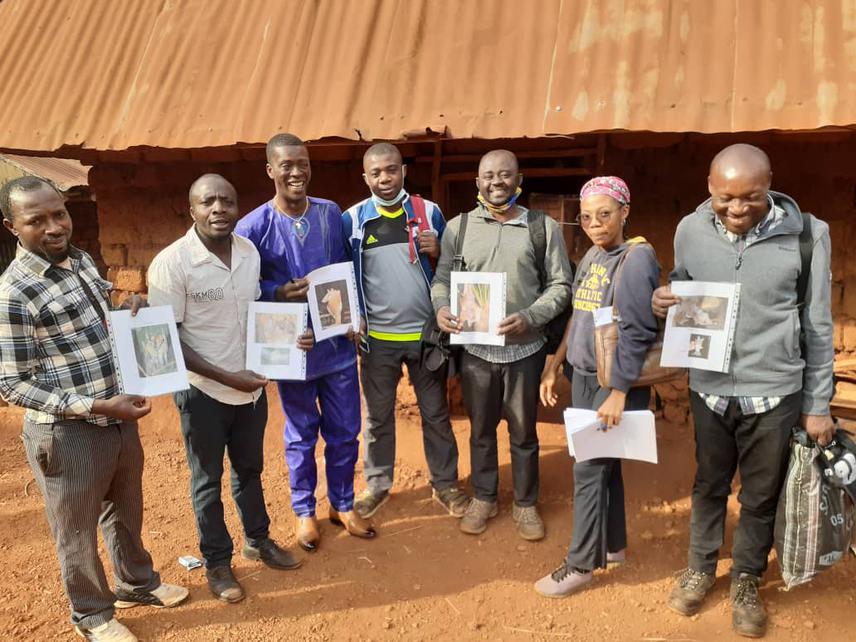Takuo Jean Michel
Knowledge of Cameroon bats remains an area where few studies have been carried out. Little information exists on the specific distribution of bats of this country. This group is facing pressure due to anthropisation. This project aims to involve local community in bats conservation by sensitizing population of Bafoussam community and school children. Questionnaire survey will be administered in order to understand their knowledge on bats. Awareness planning will be established with schools and bat survey will be carry out. Also, this project will provide information’s for “secret forest” protection and bat species conservation in Cameroon.

Western part of Cameroon is experiencing deforestation as a result of urbanization and farmlands exploitation technics. These constitute a high risk of losing basic information on bats which is essential for their conservation. Bats are nocturnal mammals that are poorly understood in Cameroon. They are currently the most persecuted group of animals in this region of the country due to the limited knowledge on their economy, social and ecology importance. This persecution is related to myths and misconceptions to which the populations firmly believe in. We decided to undertake this work because little is known about the conservation status of bats in "sacred forest". Sacred are wooded islet that either belong to a temple or are reputed to be home of spirit worshipped by the inhabitants. It is forbidden to carry out any activity. "sacred forest", essential components of Bamiléké chiefdoms, refer to a space that surround the royal palace and play multiple functions that can harbour known and unknown species. No studies have previously been conducted to assess the population dynamics, habitat use, distribution and abundance of bats in those sacred forests. This information is important for bat species conservation in Cameroon.
The following will be achieved:
• A questionnaire survey will be administered to a selected family following a certain number of criteria (hunter, traditional doctors, sacred forest conservator, household). This questionnaire will help have good idea of the conception that people have on bats in the community.
• Education of the communities about the role of bats – especially about their beneficial impact on the ecosystem (ecosystem services)
• Active communities’ involvement through school’s programmes and community-based organization /or women’s groups…. in bat conservation
• Collect data on the specific composition, habitat use, distribution and abundance of bats in Bafoussam "sacred forests"(relatively larges) which is presently lacking.
This information is of key importance to the development of strategies to monitor and protect bats and their roost.
• Greater understanding of knowledge and attitude about bats by the local population of the study area, so that an effective sensitisation awareness campaigns can be carried out
• List of recommendations will be handed to the ministry of wildlife and nature protection (Regional representation) in charge of wildlife protection of the region to help bat biodiversity conservation in general, thought it conservation plans that will be included in the national biodiversity conservation policy as well as positive attitude toward bats by the local population.